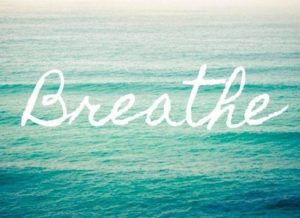
Getting a good night’s sleep may be more important than you realise
and there may be things you could do differently that would enable
you to sleep better.
There are 3 reasons why sleep is important;
Emotional Regulation – Our ability to regulate or respond effectively to our emotions. Lack of sleep increases the activity in the brain, signalling threat which then increases anxiety. We may feel more irritable and unsettled. The risk of becoming depressed can also increase when we are not getting sufficient sleep or sleeping too much.
Ability to think – Our mind is not as sharp and struggles to pay attention to the necessary information in our environment, things we see, hear and sense, meaning our perception is altered. There can be difficulty with attention, concentrating, reasoning, remembering things and learning. Finding it hard to focus, formulate ideas and communicate effectively.
Health – Increased appetite and choosing less healthy options leading to weight gain. Decreased motivation to engage in or complete exercise due to tiredness. Increased anxiety, irritability, stress and thoughts of not being able to cope have an impact on the body. Studies have also indicated an increased chance of cancer and cardio-vascular problems with ongoing, long-term sleep disturbance.
Stages and Cycle of Sleep
There are different stages of sleep that support our body and brain to perform certain functions and each stage is important. Stage 1 is fairly brief, lasting a few minutes and is the transition phase from wakefulness to sleep. Stage 2- Prepares the brain for next day learning, consolidating the days learning. Stages 3 and 4 are deeper sleep and provide the body opportunity for growth and repair. The brain prioritises the stage most needed when we fall asleep if we have been struggling to have a full night’s sleep.
Did you know we follow a circadian rhythm? Which is basically a cycle over 24 hours that our body follows, impacting our behaviour, physical ability and mental capacity at different times through the day and night. There are times we are more primed to learn, engage in physical activity, socialise with people, eat and sleep and this cycle is determined by light, more importantly sunlight!! So, when I work with depressed people one of the first things we might discuss is getting out of the house in the morning and absorbing some sunlight to start their circadian rhythm and really wake up. Conversely putting away screens and artificial light when getting ready for bed is also important as it signals to the brain that it’s time in our cycle for sleep. Darkness causes melatonin to be released which sedates the brain, interesting hey? Sleep problems are more of a modern day, western lifestyle manifestation, compounded by constant input from social media, advertising and daily demands. So many of us attempt to manage everything which increases the brains activity, attempting to remember it all and meet the standards we perceive others to be reaching. Its stressful and relentless and not conducive to a good night’s sleep.
The average adult needs to be awake for 2/3rd of the 24 hour cycle and asleep for 1/3rd . That’s 8 hours sleep a night. Having less than 6 hours or more than 9 hours sleep can often cause difficulties, mentioned above, and it’s important to realise that sleeping too much has the same effects as not sleeping enough.
Sleep Problems and Strategies
Sleep problems can arise for different reasons whether its physical pain or discomfort, worry and distress, bad sleep habits or changes in your environment. What often maintains poor sleep is thinking about how difficult it is to sleep and developing unhelpful behaviours to cope. Interestingly enough only 2 alcoholic drinks is enough to disrupt your sleep. Alcohol creates a sedated sleep which actually means you are not moving through each stage of sleep. This can impact your ability to regulate your emotions the following day and you may notice you feel more anxious or irritable. Completing or engaging in tasks may feel more difficult and you may choose less healthy food to eat and even avoid that exercise session you had planned. That night you may feel like having a drink! Cutting out alcohol during the week may highlight a strategy that helps improve your quality of sleep and mood.
Creating a space that encourages, relaxation and sleep is helpful to signal to our mind it’s time to slow down and rest. Think about your bedroom, your bed, mattress, colour of your walls. How comfortable is it, how messy is it, how light it is, how quiet it is, how warm is it? Did you know a cooler room is easier to sleep in than a hot one? Imagining a space you feel calm and relaxed in can be helpful to develop your bedrooms design, how close is your bedroom to your calm space? Another thing to be mindful of is what you do in your bedroom. It should only be used for sleep and sex, strictly NO SCREENS. That way the brain associates this space with rest and sleep.
On average it takes 15-25 minutes to get to sleep, I like the way Alison Harvey describes getting to sleep like a dimmer rather than an off switch, allow yourself to drift off. If you are not asleep in 20 minutes get out of bed and come back once you’re sleepy. Do not sleep anywhere but your bed, no sofas or kid’s room! No napping during the day either, building up your appetite for sleep is important which requires staying awake until bed time.
Associate ‘head on pillow’ with soothing, reflect on 3 things you are grateful for that day. I often hear the time someone worries, is when they go to bed. Write your worries down and pick them up tomorrow, allow your brain to engage in the sleep process. Practice some relaxation techniques or listen to some guided meditation before bed or whilst in bed. Help to sedate the brain with relaxed breathing, longer exhales. (see my Learning How To Breathe blog for more help with this http://www.westlondonpsychotherapy.co.uk/uncategorized/learning-how-to-breathe/). Associating your bed with sleep is important and if you’re struggling to sleep these techniques can really work!



![hoarding_picture[1] - Copy](http://www.josiegeddescounselling.co.uk/wp-content/uploads/2016/01/hoarding_picture1-Copy-300x225.jpg)

